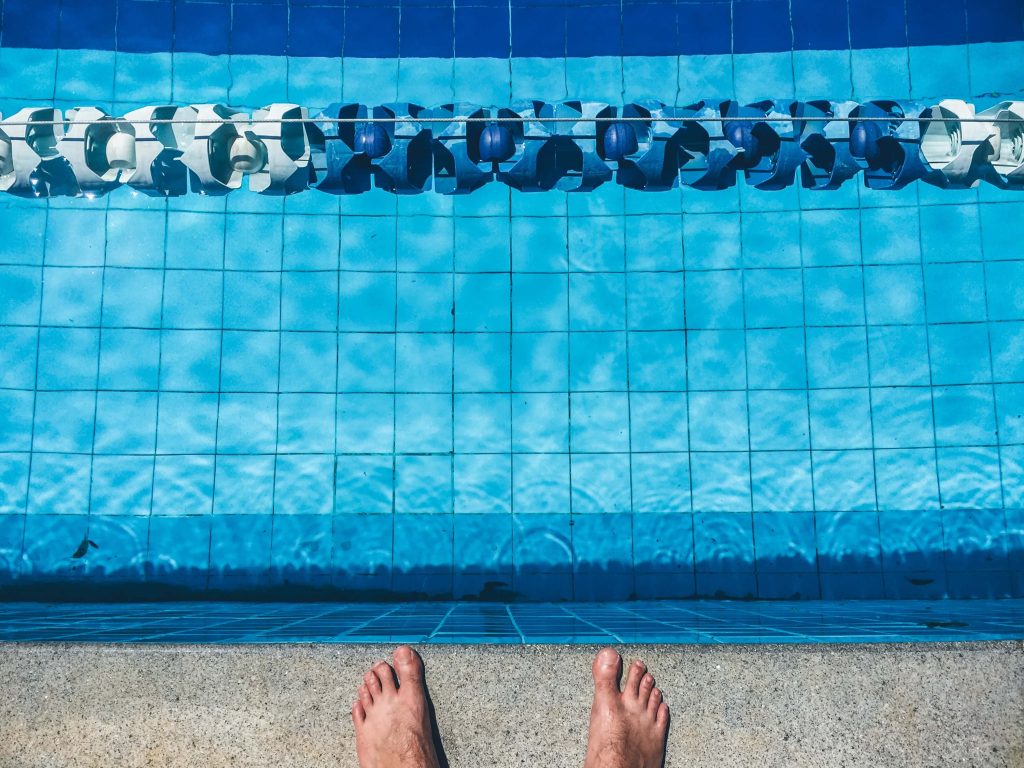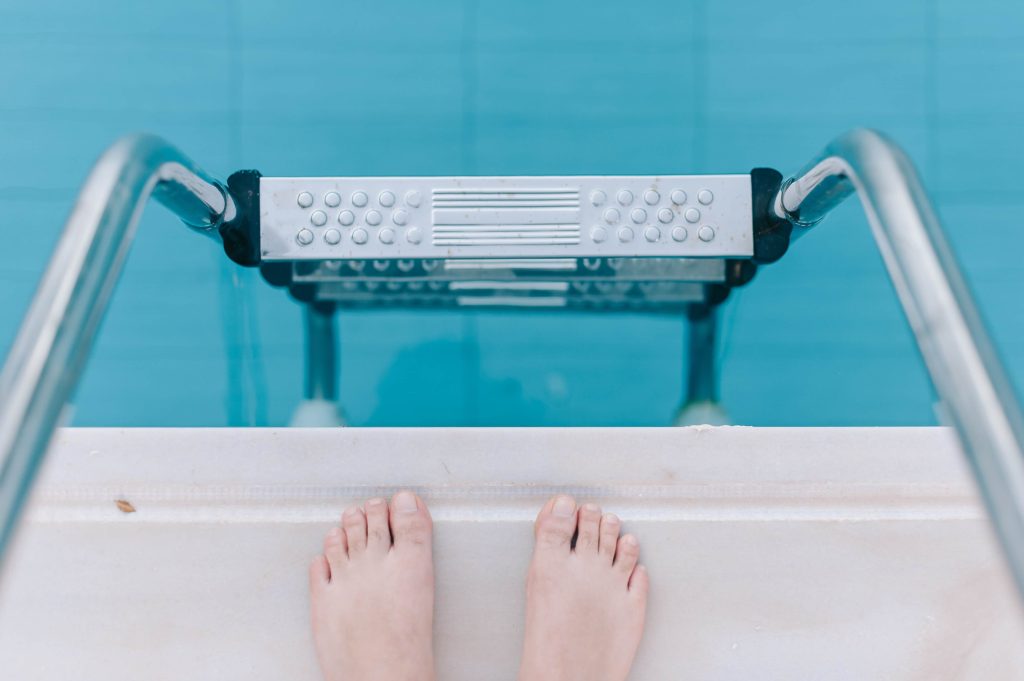Background: Over the last decade aquatic exercise has become more and more popular. One of the latest trends is aqua-cycling, where participants sit on a water-resistant stationary bike and, while immersed chest deep in the water, combine continuous cycling with upper body exercises that utilise water resistance. Since stationary cycling and aquatic exercises are frequently recommended to patients with knee osteoarthritis, combining both would seem an obvious step, and an aqua-cycling exercise programme for patients with knee osteoarthritis has indeed been developed. This study protocol gives a detailed description of the exercise programme and the methodology of a study to compare this programme with treatment involving usual care only. Methods: The study is a single-blind, parallel-group, randomised controlled trial of Maastricht University Medical Centre+, the Netherlands. Inclusion criteria: knee pain of four to seven on a 10-point pain rating scale; a Kellgren/Lawrence score between one to three; ability to cycle; good mental health; sufficient language skills; indication for physical therapy in conjunction with impairments due to OA. Exclusion criteria: any contra-indication for aquatic exercise; planned total knee replacement; corticosteroid injection <3 months and/or hyaluronic acid injection <6 months; severe joint complaints (other than knee joint); symptomatic and radiological apparent hip OA; inflammatory joint diseases; inability to safely enter and exit the pool; fear of water. Participants will receive two 45-min moderate intense aqua-cycling sessions weekly over a period of 12 weeks in addition to usual care or usual care only. Usual care consists of an individual intervention plan comprising lifestyle recommendations, medication routine and referral to a physical therapist. Participants will be assessed at baseline, and at 12 and 24 weeks after baseline. The primary outcome is self-reported knee pain and physical functioning. Secondary outcomes are lower limb muscle strength, functional capacity, self-reported disease severity, physical activity level, quality of life, self-efficacy and fear of movement. Daily diaries will collect information on knee pain, physical functioning, level of physical activity, pain medication routine and physical therapy (control group only) or exercise participation over two 30-day periods (during the intervention period). Discussion: To our knowledge the present study is the first randomised controlled trial evaluating the effects of aqua-cycling in the pre-surgical stage of knee osteoarthritis. This trial will demonstrate if the newly designed aqua-cycling intervention, in supplement to usual care, can help to improve impairments due to knee osteoarthritis. Trial registration: Netherlands Trial Register NTR3766 (21-12-2012).
Study written by: Stefanie Rewald, Ilse Mesters and co.
View the full study here.
Source: Rewald, Stefanie & Mesters, Ilse & Lenssen, Antoine & J. Emans, Pieter & Wijnen, Wiel & Bie, Rob. (2016). Effect of aqua-cycling on pain and physical functioning compared with usual care in patients with knee osteoarthritis: study protocol of a randomised controlled trial. BMC Musculoskeletal Disorders. 17. 10.1186/s12891-016-0939-5.


